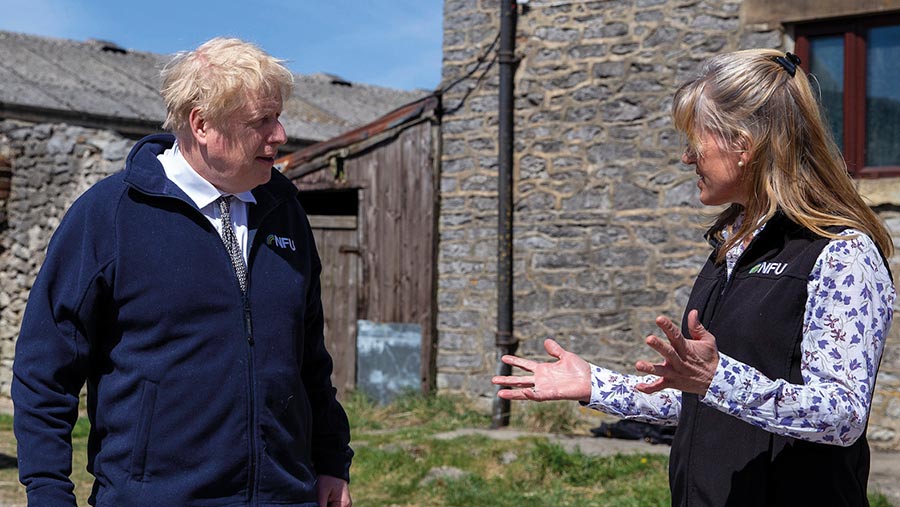NFU demands strategy to ease impact of trade deals
 © NFU
© NFU The NFU is demanding that the government produces a comprehensive strategy to ease the impact of cheap food imports on British farmers.
The UK government has agreed in principle to a free-trade agreement (FTA) with Australia, which includes the phased removal of tariffs on imported foods, including beef, lamb and sugar over a 15-year period.
Speaking at a press briefing on Monday (21 June), NFU president Minette Batters said the UK government had placed British farmers in the “most extraordinary” situation of raising of domestic standards on animal welfare and environmental protection, while negotiating trade deals with a “profound impact” on markets.
See also: Australia trade deal ‘risks UK sugar beet competitiveness’
Mrs Batters said granting Australian farmers tariff-free access to the UK market is “incredibly significant” and she warned that large-scale increases in imports could pile pressure on farmgate prices and cause significant harm to farm businesses.
Other large agri-producing countries, such as Canada, the US and Argentina, will be expecting similar FTAs and access to the UK market, which she described as “one of the most prized food markets in the world”.
Mrs Batters said: “[The Australia deal] is a precedent. The New Zealanders will be expecting the same treatment on dairy. The Canadians will be expecting the same treatment, as will the US.”
NZ team meeting
Last week, she and Nick von Westenholz, NFU director of trade and business strategy, met with the New Zealand agri-trade negotiating team, who told them they were seeking completion of a UK-NZ FTA for this August.
Negotiations are “happening at pace” and Mrs Batters made a direct plea to prime minister Boris Johnson to “press pause on the press release moment” and develop policies that will secure a long-term, thriving UK agricultural sector.
Latest figures from the Food and Drink Federation have revealed that in the first three months of 2021, UK food and drink exports into the EU fell by 47%, compared with the same period in 2020, because of the ongoing impacts of Covid-19 and changes in the UK’s trading relationships.
Mr von Westenholz said if the UK government was to argue that Australian imports were merely displacing trade with the EU, it could still have a big impact on farmgate prices.
“It is difficult to know what will happen once we have opened up access. But if it is displacing imports from the EU, then that’s obviously still going to be putting downward pressure on prices.
“They will be undercutting those [EU] imports, which will have an impact on prices here.”
Exports help
According to the NFU, the UK government must also give more support to farmers who want to export to countries across the globe.
Mrs Batters said one of the union’s key asks is for government to create a UK Food Council that “puts agricultural boots on the ground in other parts of the world to open up new markets”.
But it can take five to 10 years to break into new markets, she added.
Australia has 22 full-time agricultural counsellors, The Netherlands has more than 100 people totally focused on agricultural exports, and Ireland has massive investment in this area, she noted.
By contrast, she said the UK have two full-time agricultural counsellors; 80% of which is paid for by levy payers (AHDB).
Farmers Weekly has contacted the Department for International Trade to request a comment.
